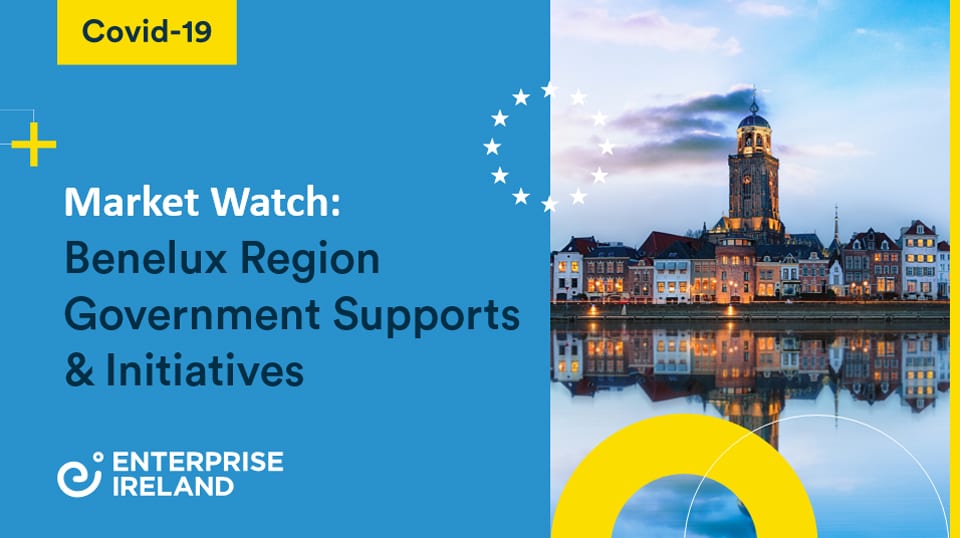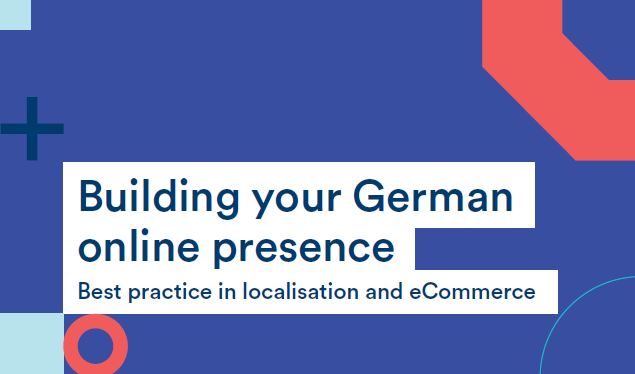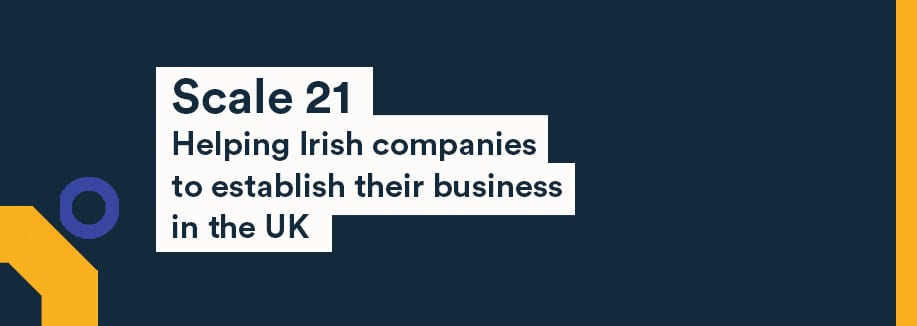Market Watch Germany – Webinar – Impact on Supply Chain
Download the bulletin here.
Download the bulletin here.


Key Takeaways
“It’s an evolving situation across North America but for the most part there are work-from -home requirements in most jurisdictions across both the US and Canada,” he says. “Travel is heavily restricted, and there is some supply chain disruption, also your customers are busily working to stabilize their own businesses. There is also uncertainty and fear of the unknown, along with customer cash flow disruption and in some cases contract negotiations frozen.
“With this in mind the focus of activity for Irish exporters should be around three pillars – stabilise, reset and recover, which in the immediate term, means stabilise. So staying close to customers and key strategic partners is vital, as is being aware of their situation, i.e. in addition to shared commercial challenges being able to connect by having an understanding of the specific impact of this crisis in their town or city is an important demonstration of empathy at a critical time
“We are seeing instances where contacts in some NA companies we are close to have been directly and profoundly affected personally by Covid-19, so again situational awareness is important and as much as possible communication needs to be via telephone or video conference as it is much more personal, empathetic and engaging.
“But brevity is key when it comes to the US and while many people are working from home, they are still time poor, so it’s important to keep things brief – to quote Franklin D. Roosevelt ‘Be sincere, be brief, be seated’.”
Davis says that the Reset and Recover phases will be more successful if companies use the stabilise period to accumulate as much market and customer intelligence as possible.
“This is an important time to identify where your company and product offering might have to pivot in order to be ready,” he advises.
“But don’t over-extend your company’s credit terms either; this is a rapidly evolving situation and cash flow is crucial. Any Irish companies with an in-market presence and employing in the region, especially those with significant deployment, should be actively looking at what supports are being made available whether through economic stimulus packages or through funds available to support key sector strategic priorities within a country, state or province.”
Enterprise Ireland has seven offices across the region with teams ready to support their client companies throughout this journey.
“We have developed and completed a six-part webinar series called “Reliance and Adaptability in Extraordinary Times” led by a series of key opinion leaders in areas such as Leadership and Communication, Crisis Communication and Creating a New Narrative,” says Davis. “Our teams are working on a one-to-one basis with clients through key areas and deliverables. And for significantly impacted sectors, we have delivered, and are working on, other webinars bringing client companies and subject matter experts together.
“On a weekly basis, we are gathering market and sector intelligence which is being collated centrally in HQ and distributed via our colleagues in Ireland to client companies.”
While not all sectors are impacted equally, Davis says there are still opportunities available and companies are still signing new business by solving problems, delivering innovation and fostering good partnerships
“North America is a vast economic and geographical landscape which is likely to emerge from the current crisis in different stages and in different states (US) or provinces (Canada), hence some markets are likely to enter that Recover phase sooner than others and our network will be able to advise and support as this happens.”
There are steps that can be taken to mitigate those effects, according to Shirlee Kelly, a strategic sourcing consultant with IDDEA, a strategic procurement consulting company.
“In Ireland, many companies rely on just-in-time delivery for the supply of goods and services, and the success of this strategy is dependent on highly integrated and efficient supply chains,” Kelly points out. “The availability of labour may impact on supply chains, while government actions may lead to delays in physically moving materials from location to location as well as at ports and across borders.”
As a first step, she advises businesses to assess their supply chain risks and identify those critical suppliers that can have a detrimental impact on the business. “Businesses should conduct a health check on their critical supply chains,” she says.
Start by looking at internal data.
The next step is contingency planning. “These plans may include, finding alternatives to normal supply routes, investing time in discovering and conditioning new suppliers,” Kelly advises. “Companies may need to change their sourcing strategies to include a more local approach. If companies are dependent on one supplier, they need to put measures in place to make sure they have sufficient stock and ensure business continuance. It is important for businesses of all sizes to build resilience across their supply channels and keep their key customers informed of the work they are doing to meet demand.”
Good supplier management is essential in order to reduce the potential impacts of supply chain disruption. “You may have 500 suppliers, so it is not possible to manage every supplier in the same way,” Kelly notes. “We use the Kraljic Matrix to categorise suppliers by the value you spend with them and the risk they pose to your ongoing operations.”
This matrix reveals those suppliers who are strategically important by evaluating them against their value to the bottom line and the risks of a disruption affecting their performance. High-value, high-risk suppliers clearly need careful management, as indeed do those in the low-value, high-risk quadrant who are defined as bottlenecks.
Supplier management begins with information.
The data analysed, and the knowledge gained, forms the basis of your supplier performance management. “Ensure you have a scorecard in place to allow you measure supplier performance? What metrics do you use and are they aligned with what you are trying to achieve in your overall business strategy?”
“It is important that strategic suppliers work with you on risk management strategies,” she adds.
Those risk management plans should be based on four key elements – awareness, impact, mitigation, and contingency planning.
“Awareness is about understanding the probability and potential impact of the risk,” Kelly explains. “The goal of risk management is to recognise, reduce or mitigate the likelihood of risk. The objective is to identify procedures for managing all stages of risk, this includes, disruption – interruption, response, recovery and restoration of service.
She concludes by pointing out that doing nothing is not an option. “Companies need to act now, investigate the opportunities in your data, identify your key supply partners and work together on problem resolution. Treat key suppliers as an extension of the business and find out how you can support each other. Irish businesses are very good at working together in difficult times. Government bodies such as Enterprise Ireland are a great resource for information on the various supports available to Irish businesses. The companies I am currently working with are sharing information with their supply base and this is helping to ease supply chain problems.”
The COVID-19 Pandemic Unemployment Payment is an emergency payment of €350 per week introduced by the Government in response to the numbers of people who have lost employment on foot of the pandemic. It is designed to quickly get thousands of people into payment.
According to the DEASP, all workers, including the self-employed, are eligible to apply for this emergency payment provided they are aged between 18 and 66 and have lost employment – or temporarily ceased trading if self-employed – due to the pandemic, and live in the Republic of Ireland.
To be eligible, workers must have been in employment or self-employment immediately before Friday 13 March and have been temporarily laid off from work, and are not in receipt of any employment income. For employees, their employer must not be in a position to retain them on the payroll.
The quickest and easiest way to apply for the emergency COVID-19 payment is to apply online at MyWelfare.ie All that is required is for the individual to have an email address, a bank account and a PPSN. Simply go onto the COVID-19 Services section of the website and apply for the payment. You will have to set up an account, but it is a simple and straightforward process.
The DEASP advises those with an adult dependent and one or more dependent children to apply for the Covid-19 Pandemic Unemployment Payment and then apply Jobseeker’s Benefit instead, as this will pay more than the €350 available under the COVID-19 scheme.
The Enhanced Illness Benefit Payment is available to workers who have been told to self-isolate by a doctor or the HSE, or have been diagnosed with COVID-19 by a doctor. To be eligible for this payment, a person must be confined to their home or a medical facility. The rate for this payment is €350, as compared with the normal Illness Benefit rate of €203. It will be paid for a maximum of two weeks where a person is self-isolating and for a maximum of 10 weeks if a person has been diagnosed with COVID-19.
A doctor will complete a medical certificate on the person’s behalf and send it directly to the DEASP. Alternatively, where the person has been advised by the HSE to self-isolate, they will need to submit a copy of the HSE notification with their Illness Benefit application form.
Once again, the quickest and easiest way to apply for the payment is by applying online at MyWelfare.ie
Another payment available to workers is Short Time Work Support. This is a form of Jobseeker’s Benefit for people temporarily placed on a shorter working week. The payment is made in respect of the person’s regular salary for the days that they are no longer working. For example, if their working week has been reduced from a five-day work pattern to three days, they can receive support for the other two days. Payment is proportionate to the €203 Jobseeker’s Benefit rate.
People can apply for Short Time Work Support by applying at their local Intreo Centre or Social Welfare Branch Office.
Operated by Revenue, the Temporary Covid-19 Wage Subsidy Scheme is an innovative initiative to support companies to retain employees and to re-employ employees who have been laid off due to the COVID-19 pandemic. Under the terms of the scheme, employers will be refunded 70% of an employee’s wages – up to a level of €410 per week.
The subsidy scheme applies both to employers who top up employees’ wages and those who aren’t in a position to do so. Employers make the support payment to their employees through their normal payroll process and will then be reimbursed by Revenue within two working days of receipt of the payroll submission.
The scheme is available to employers from all sectors (excluding the public service and non-commercial semi-state sector) whose business activities are being adversely impacted by the COVID-19 pandemic.
To qualify for the scheme, employers must be experiencing significant negative economic disruption due to the COVID-19 pandemic; be able to demonstrate, to the satisfaction of Revenue, a minimum of a 25% decline in turnover; be unable to pay normal wages and normal outgoings fully; and retain their employees on the payroll.
Revenue has made it clear that declarations made under the scheme are not declarations of insolvency.
Employers wishing to register for the scheme can apply to Revenue through ROS myEnquiries on the COVID-19: Temporary Covid-19 Wage Subsidy section.


Key Takeaways:
“Restrictions on movement of people is impacting on clients’ ability to respond to customer and partner needs,” says Donohoe. “Market confidence and demand has been eroded, and deals are being lost while fund raising plans have been curtailed or stalled. There is great uncertainty on how deep the recession will be and how long it will last, and this makes for a particularly challenging time for Irish industry.
Donohoe says it’s vital for companies to stay connected by keeping abreast of what is going on, exploring the possibilities of virtual business and continuing to invest in client/partner relationships.
“It’s a time to listen and learn about the problems your clients are experiencing and how together you may find potential solutions which strengthen your partnership,” she says. “But also, it’s important to exercise caution when extending credit, especially when your business partners are relatively new, and you’re not familiar with their current liquidity position.
“So, I would encourage companies to actively research the marketing issues their clients are facing, seek out information on the current situation from trusted sources like the WHO or local government departments. And continue to invest in marketing because while industries globally are in crisis mode, they are still seeking solutions to trade so with heavy restrictions on travel, focus on virtual meetings and as a means of engaging prospective new customers.”
While it is undoubtedly a difficult time in business, the regional director says there have been many supports put in place across UK, Central & Northern Europe and Russia.
“A variety of measures have been adopted by the British and other European governments,” she says. “Each country is offering a range of specific supports including loans, wage subsidies or guarantees and these may be relevant for Irish companies with a presence overseas. OECD provides a regularly updated Country Policy Tracker to help navigate the global policy response and provides information on travel, border crossings and general health advice.
“Many sectors are severely impacted such as the tourism and hospitality trade, personal and professional services and certain areas of the financial and manufacturing sectors.
“Transport is also a major concern and although some countries (e.g. UK and Sweden) have not closed their borders, many others have created temporary regimes which are causing problems for road deliveries – logistics details can be found here.
With all these added complications, doing business can be difficult for Irish exporters and Enterprise Ireland is currently preparing sectoral market insights which will be shared with clients and updated weekly to provide view on market conditions, government supports etc. Details on public sector contracts and offers can be seen on this platform and also on the GOV.UK site.
Donohoe also says there are still opportunities for growth but in a few core sectors:
“As markets and sectors emerge from this crisis with expected fundamental shifts in consumer/business needs it is a time to also prepare for these changes. Ireland’s SMEs have demonstrated resilience and flexibility by adapting to Brexit challenges and a global recession so remaining agile will be an advantage”.
No-one knows when the crisis will be over, but Donohoe says it’s vital for Irish exporters to stay connected and prepare for the reopening of markets.
“Utilise all digital tools to deepen relationships and promote your business,” she advises. “Prepare for the upturn to secure existing business and research potential new opportunities to emerge now and post the crisis.
“Business and consumer demand will change so investment in research, new idea validation, competitor analysis and the development of strong market development plans will all position Enterprise Ireland clients for the next global economic growth cycle. Enterprise Ireland’s executives across the 8 offices in UK, Central & Northern Europe are on hand to support you through this exceptionally difficult and unprecedented period.”
 There is no doubt that the impact of COVID-19 on mainland Europe has been profound with most countries operating on a skeleton crew of essential businesses and services. However, Anne Lanigan, Regional Director, Eurozone, for Enterprise Ireland, says goods are still moving and it is possible to do business.
There is no doubt that the impact of COVID-19 on mainland Europe has been profound with most countries operating on a skeleton crew of essential businesses and services. However, Anne Lanigan, Regional Director, Eurozone, for Enterprise Ireland, says goods are still moving and it is possible to do business.
Key Takeaways:
“A lot of sectors have been very badly hit, particularly in the hospitality, aerospace and automotive sectors,” she says. “High tech construction of pharma facilities and data centres is still continuing, with some challenges in Germany and the Netherlands. Pharma, Medtech and Food still continue as best they can, and we have good examples of clients in the technology, eCommerce and employee engagement sectors who are experiencing growth. However, for many sectors things are likely to get worse before they get better.”
“I would encourage Irish exporters to make contact with customers, partners and distributors. Communication is crucial at this point. Getting an understanding of the situation your customers are in will help you in forward planning and may help you to deliver an immediate or different solution. In addition, the contact you make now will be appreciated and remembered once we are over this crisis.”
Speaking to customers over the telephone or in a virtual meeting, rather than by email, will offer a much better opportunity to engage and get insights into their situation, what their future plans are and how you might feature in those future plans.
Depending on staff availability and the level of slowdown, Lanigan says some businesses may be able to use this time to build their export capability.
“This could be an opportunity to do market research, a very important element of successful exporting” she advises. “This crisis is temporary so fundamentally it’s still important to validate markets and sectors for your products and services, carry out competitive analysis, build a pricing and communication strategy and develop a strong market development plan.
Doing an online language course for an hour every day might also be a welcome break away from home working while also building up a necessary skillset for exporting to Europe.”
The Eurozone director says there are many supports available to Enterprise Ireland clients as well as government supports available to all companies. These can be found on the Enterprise Ireland Covid-19 business response pages and new supports will be added as soon as they become available. Specific market supports such as the Market Discovery Fund are of course still all available. And Eurozone Market Advisors can provide specific information on supports available locally in their markets.
“Alongside the obvious market challenges, we are seeing a number of other challenges. Our clients are in some cases finding it difficult to engage with customers who are busy trying to resolve their own internal problems,” she says. “Movement of product is also more complicated as extra paperwork is required in some locations. It’s also difficult to get clarity regarding the movement of people as the situation is evolving. However, we continue to assist client companies in meeting buyers (virtually), and we are seeing business deals– it’s not anything close to normal but it is still moving.”
“In addition, in every crisis there are opportunities. Irish companies are typically highly innovative and are quick to pivot. Our clients are known for their flexibility and can change focus quite quickly so there is the possibility to adapt products and services to win business in new markets and new sectors.
Lanigan says the key to surviving this crisis is to stay close to customers, demonstrate flexibility, and be innovative:
“Enterprise Ireland Market Advisers are available to help. Our team across the Eurozone are working remotely and contactable by phone or email for one-to-one support. Our priorities are to respond to particular requests from clients and to proactively support clients to continue to do business. In addition to supporting contact with customers, distributors and partners, Market Advisors can also provide advice and help with local market knowledge on the evolving situation and help deal with particular issues as they arise. If you haven’t had recent contact with your Enterprise Ireland Market Advisers please get in touch with your Development Adviser who will make the introduction.”

Selecting the route to market can be one of the main challenges for any business looking to export to Germany. While in the past there may have been a preferred or single route to market, businesses are achieving success using multi-channel approach to engage the market at different levels.
Enterprise Ireland’s team in Germany has seen the importance of online to not only sell products and services but also to support the German customer in their buying journey. Buying decision are often made well in advance of the first contact. Your online presence is a key factor in informing and influencing your customer about your business and why they should consider you for their needs.
Enterprise Ireland has vast experience in advising businesses on German customers’ perspectives and expectations and how to develop an effective German online presence. In conjunction with Glocafy, Enterprise Ireland has developed this Best Practice guide with sectoral insights and advice from companies already trading in Germany.
 The UK has always been and remains Irelands largest single trading partner with a wealth of opportunities for Irish companies.
The UK has always been and remains Irelands largest single trading partner with a wealth of opportunities for Irish companies.Gillian Doyle, CEO Cerebreon discusses her experience of participating on Scale UK and gives her advice for companies applying for next year’s programme.
Carol Ward, President at Man GLG and Scale UK mentor shares her experience of Scale UK, working with fellow mentors and Irish diaspora and the importance of supporting companies with growth ambition for the UK.